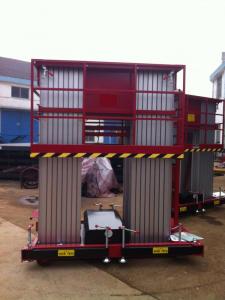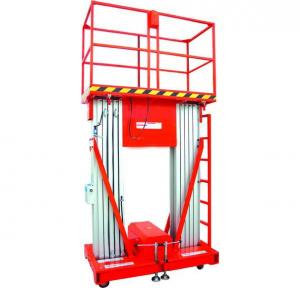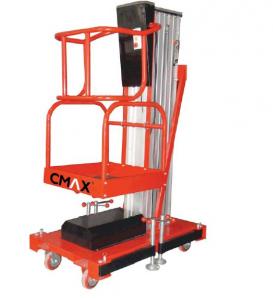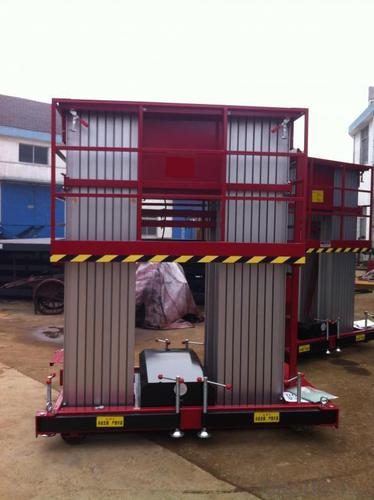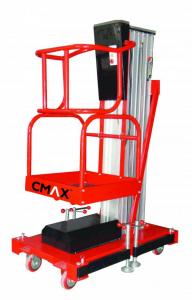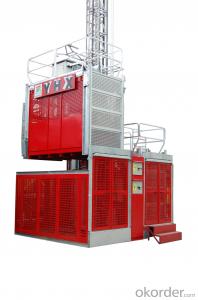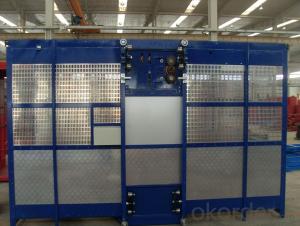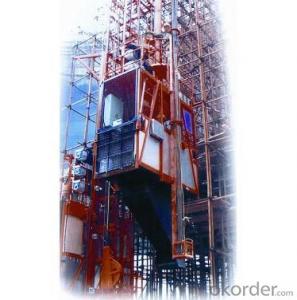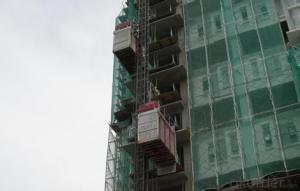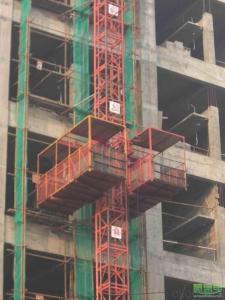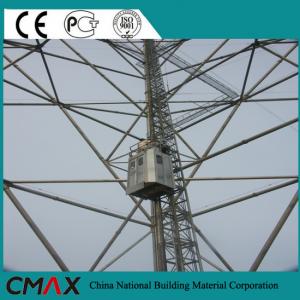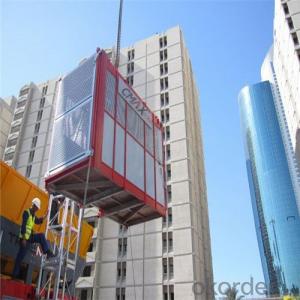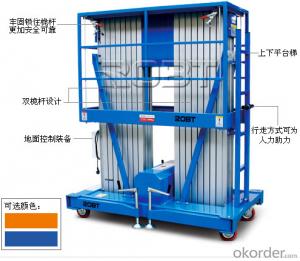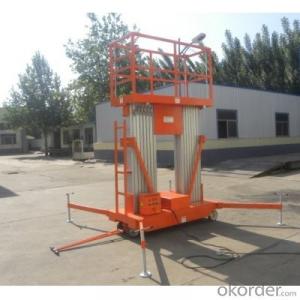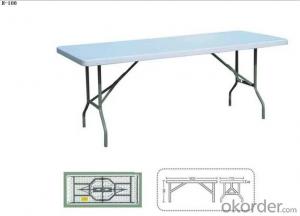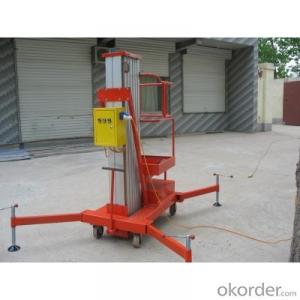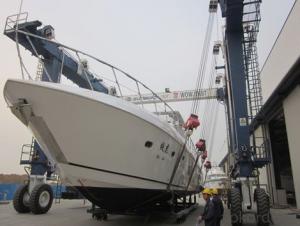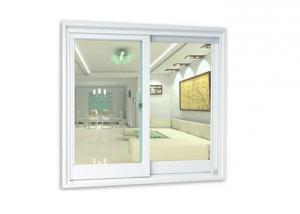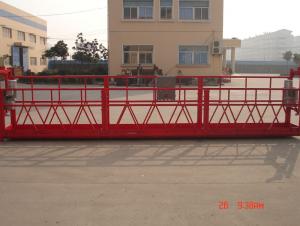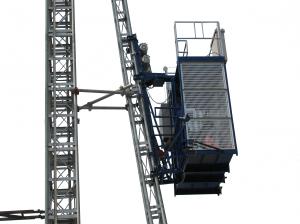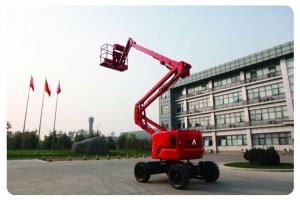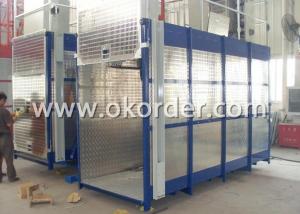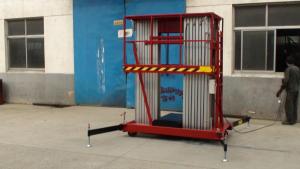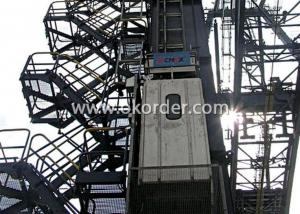Aluminium Lift
- Loading Port:
- China Main Port
- Payment Terms:
- TT or L/C
- Min Order Qty:
- -
- Supply Capability:
- 50 Sets Per Month m.t./month
OKorder Service Pledge
OKorder Financial Service
You Might Also Like
Max. working height(m): 16
Travelling when lifts(kg): 8100(12 boom)
Max. lifting torque(kN m): 2062
Boom length: 12~30(standard configuration 18m)
Aluminium Lift Working range: 4~29(outriggers extended)
Aluminium Lift elevation range: 22~77
Max. lifting height(mm): 27650 (with 30 boom)
Aluminium Lift Axle base(mm): 2650+1300
Wheel base fromt/rear(mm): 2400/2400
Aluminium Lift Ground clearance(mm):225
Gradeability(%):21
Min. turning diameter(m): 20
GVW(with 12m boom)(kg): 49700
Aluminium Lift Outigger type: H type
Machine dimension(without boom)(L×W×H)(mm): 7460× 3315× 3710
Machine dimension(with 12m boom)(L×W×H)(mm): 17150× 3315× 3710
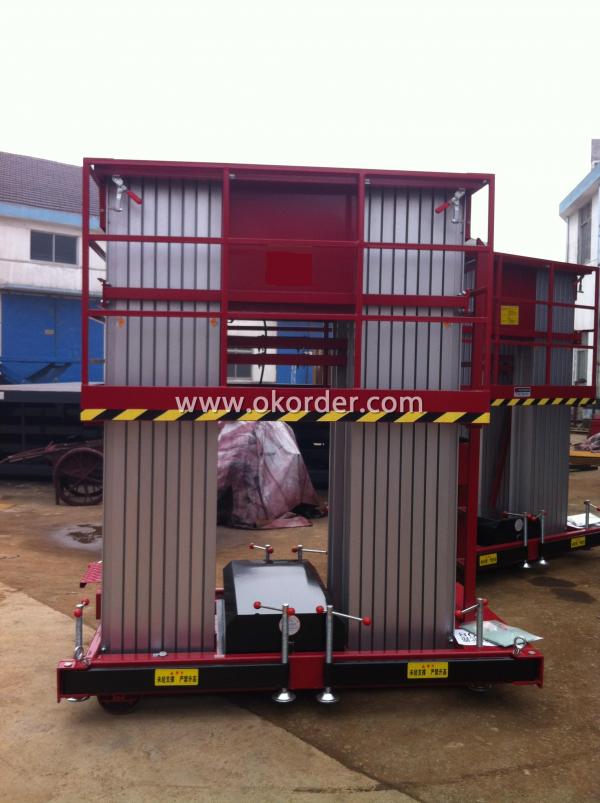
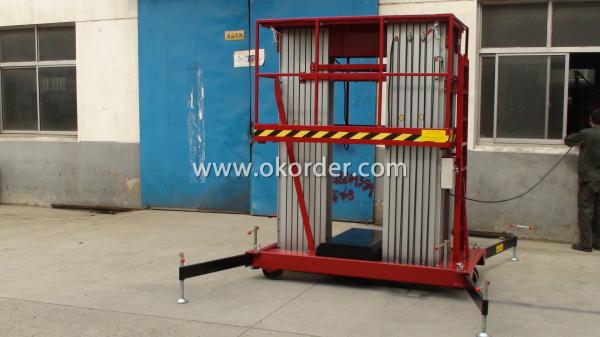
- Q: Is there any violation of the law after the construction elevator is scrapped?
- In principle, eight years; But for eight years has scrapped section standard of standard section pillar thickness wear to design thickness of 1/4 (like this value) will be scrapped or downgrade use; After eight years, the construction elevator can also be used, but the structural parts need to be broken and the test can be used again. The pendant safety device for the construction elevator is required to be tested every year for five years.
- Q: This question asks about the steps or measures to ensure the safe installation of a building hoist, which is a device used in construction for lifting materials and personnel.
- <p>To install a building hoist safely, follow these steps: 1. Ensure the site is clear and secure, with proper access and no obstructions. 2. Check that the hoist is suitable for the load and building structure. 3. Assemble the hoist according to the manufacturer's instructions. 4. Install the hoist on a stable and level base, ensuring it is securely anchored to the building. 5. Conduct a thorough inspection of all components for any defects or damage. 6. Test the hoist with a trial run to ensure all functions work correctly. 7. Train operators on the safe use and operation of the hoist. 8. Obtain any necessary permits and inspections from local authorities. 9. Regularly inspect and maintain the hoist to ensure ongoing safety.</p>
- Q: A building hoist is a mechanical device used in construction to lift materials and sometimes workers vertically. It is essential for the efficient movement of materials in high-rise construction.
- <p>The function of a building hoist is to facilitate the vertical transportation of materials, equipment, and sometimes workers within a construction site. It is particularly useful in high-rise buildings where manual lifting would be inefficient and unsafe. A building hoist allows for the rapid and safe movement of materials, reducing labor costs and improving construction speed.</p>
- Q: How does the elevator operate
- Responsible for operating elevator, maintenance, maintenance and safety. See what kind of elevator and workplace you are working on.
- Q: What are the financial expenses associated with buying and keeping a building hoist in good condition?
- <p>The costs of purchasing and maintaining a building hoist include the initial purchase price, which can range from $10,000 to $50,000 depending on the hoist's capacity and features. Maintenance costs involve regular inspections, lubrication, and part replacements, averaging around $1,000 to $3,000 per year. Operating costs include labor for hoist operation and potential rental fees if the hoist is not owned. Additionally, there may be costs for safety training and compliance with regulations. These costs can vary widely based on the specific hoist model, usage frequency, and local regulations.</p>
- Q: There are differences between the construction elevator and the construction elevator
- The principle is different, the construction elevator operates in the litter box. The elevators are short for construction elevators, which are very high in the safety and performance of large facilities that can be used on the site. The construction elevator should be a dual-use lifting device.
- Q: This question asks if building hoists can be utilized for extended periods of time in construction projects.
- <p>Building hoists are generally designed for temporary use in construction projects, facilitating the movement of materials and personnel. They are not intended for long-term operations. Their design and safety features cater to the specific needs of construction phases, which are temporary by nature. For permanent installations or long-term material handling, other types of elevators or lifts are more suitable. It is crucial to adhere to the manufacturer's guidelines and local regulations regarding the use and duration of operation for building hoists to ensure safety and compliance.</p>
- Q: Construction site construction elevator and tower crane, which unit security check and acceptance?
- Inspection by the quality supervision bureau special equipment inspection department.
- Q: Is it possible to fix or replace a building hoist once it has stopped functioning?
- <p>Yes, a building hoist can be repaired or replaced after it has failed. Repairs are often possible if the hoist has mechanical or electrical issues that can be diagnosed and fixed by a qualified technician. If the hoist is beyond repair or if it's more cost-effective, a replacement may be necessary. It's crucial to have a maintenance plan and regular inspections to prevent failures and ensure the hoist's safe operation. In case of a failure, immediate action should be taken to either repair the existing hoist or install a new one, adhering to safety standards and regulations.</p>
- Q: This question is asking for a comparison between electric and hydraulic building hoists, focusing on their differences.
- <p>Electric and hydraulic building hoists differ primarily in their power source and operational mechanisms. Electric hoists use electric motors to lift and lower loads, which makes them more energy-efficient and quieter in operation. They also tend to have fewer maintenance requirements and are often easier to control with precise movements. Hydraulic hoists, on the other hand, use hydraulic pressure to move loads and are known for their ability to lift heavy loads with less effort. They are often preferred for applications requiring high lifting capacities and can be more compact. However, hydraulic hoists may require more maintenance due to the presence of seals and fluid systems, and they can be noisier than electric hoists.</p>
1. Manufacturer Overview
| Location | Beijing,China |
| Year Established | 2003 |
| Annual Output Value | Below US$1 Million |
| Main Markets | Mid East;Western Europe;North America |
| Company Certifications | ISO9001:2008 Certificate |
2. Manufacturer Certificates
| a) Certification Name | |
| Range | |
| Reference | |
| Validity Period |
3. Manufacturer Capability
| a) Trade Capacity | |
| Nearest Port | Shanghai |
| Export Percentage | 1% - 10% |
| No.of Employees in Trade Department | 1000 People |
| Language Spoken: | English;Chinese;Japanese |
| b) Factory Information | |
| Factory Size: | Above 300,000 square meters |
| No. of Production Lines | Above 10 |
| Contract Manufacturing | OEM Service Offered;Design Service Offered |
| Product Price Range | Average |
Send your message to us
Aluminium Lift
- Loading Port:
- China Main Port
- Payment Terms:
- TT or L/C
- Min Order Qty:
- -
- Supply Capability:
- 50 Sets Per Month m.t./month
OKorder Service Pledge
OKorder Financial Service
Similar products
Hot products
Hot Searches
Related keywords
